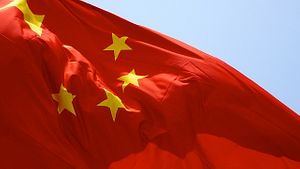China’s diplomacy has emerged as a stronger player from this year’s National People’s Congress (NPC). China comes out of this NPC with at least five high-ranking officials in charge of the country’s foreign policy. The once sidelined Ministry of Foreign Affairs (MFA) has received a substantial boost through a budget increase, leadership changes, and rumored structural reforms. And a newly created State International Development Cooperation Agency (国家国际发展合作署) will now be in charge of coordinating China’s growing budget for foreign aid.
All of these changes reflect the high priority that Xi Jinping gives to foreign policy as part of his vision to turn China into a global power by 2049 (the centenary of the founding of the People’s Republic). In order to defend China’s interests abroad and push forward the Belt and Road Initiative without causing major conflicts, China needs a more effective and efficient foreign policy and diplomacy. The reforms also come at a time when China sees a window of opportunity to expand its global presence and influence, as the United States takes a step back from some of its international activities and commitments.
China’s foreign policy will be handled by some of China’s most seasoned and influential diplomats. Minister of Foreign Affairs Wang Yi has kept his position but has also been promoted during this NPC to the position of state councilor with responsibility for foreign affairs (replacing Yang Jiechi). This is an important boost to his authority, as the state councilor ranks above the Minister of Foreign Affairs. The consolidation of both positions under Wang Yi can be expected to lead to a more efficient foreign policy decision-making process.
In other important personnel changes, Xi Jinping ally Wang Qishan was confirmed as vice-president, and, in a very unusual move, is widely expected to be given a foreign affairs portfolio with a special focus on relations with the United States. Politburo Standing Committee members Wang Yang and Wang Huning are also considered as two important advisers to Xi in foreign affairs, along with former State Councilor Yang Jiechi, who remains a member of the Politburo for now, even though he seems to not have been given a position for the next five years. This way, the overall responsibility for China’s foreign policy is still shared between party and state.
Taking advantage of the void left by the United States, Beijing seems determined to spend more on its global footprint. Although the foreign affairs budget is still minuscule compared to China’s defense budget, the 2018 budget for diplomatic work outlined in this year’s NPC represents a dramatic increase over previous years.
The foreign affairs budgets of the United States and China are difficult to compare, especially due to China’s lack of a broken-down budget and different accounting practices. What is clear is that while the United States is downgrading the State Department, China is giving substantially more power to its diplomats. Beijing’s budgeted 60.07 billion renminbi ($9.49 billion, a 15.6 percent increase from 2017, and about 40 percent higher than the 2013 budget, the first proposed by the new Xi administration), stands in contrast with U.S. President Donald Trump’s 2018 federal budget request of $28.2 billion for the State Department and other international programs, which represented a 29.1 percent decrease from 2017.
In another step to streamline its foreign policy apparatus, Beijing has reportedly initiated structural reforms that will give the foreign ministry more power over embassy personnel decisions. If implemented, this will be a major win for China’s diplomats, since until recently the ministry had no control over personnel posted to China’s embassies from other ministries or bodies.
One exception from the overall consolidation of responsibilities under the MFA is the creation of the new foreign aid agency, which has taken some responsibilities away from the MFA and the Ministry of Commerce. The fact that China has set up an institution with the specific mission to control and distribute funds for its international aid programs underlines the high importance the Xi leadership gives to bolstering its global security interests through economic means.
The overhaul of China’s foreign policy apparatus, and the resulting, more consolidated diplomatic structure, suggest that we are likely to see a Chinese leadership that continues pushing for Xi’s foreign policy priorities and his goal of turning China into a global power by 2049. Over the next five years, China will therefore be more present and more engaged overseas, both with diplomatic initiatives and with hard cash.
Helena Legarda is a Research Associate with MERICS’ Foreign Relations program. Her research focuses on China’s foreign and security policies, including their domestic sources and drivers, and their geopolitical impact.

































